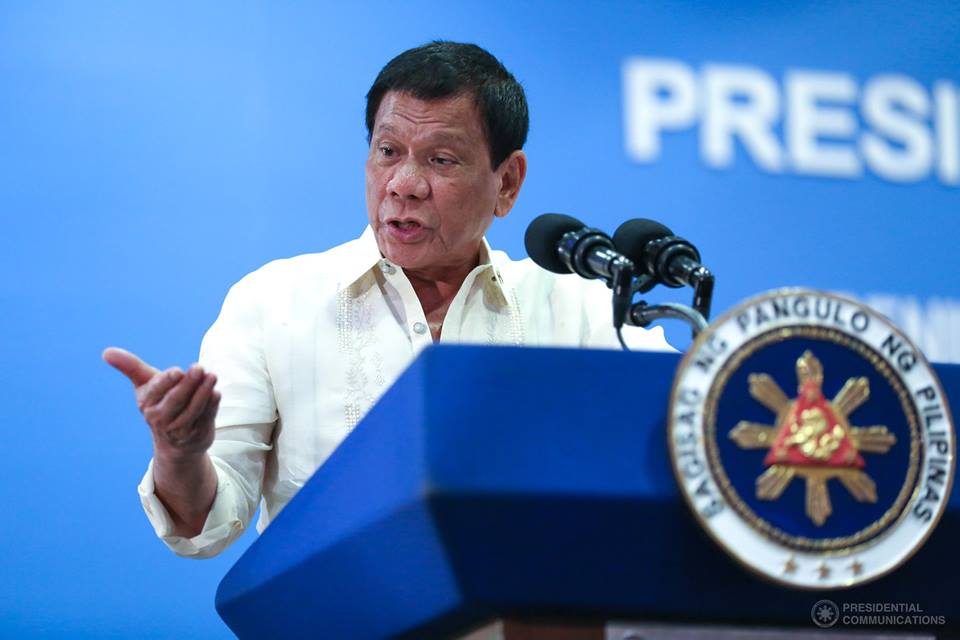Breaking
Duterte effect now translates into major infra developments—Palace

The reforms being initiated by the Duterte administration continue to translate into major infrastructure developments, a Palace official said on Thursday. (Photo: Presidential Communications (Government of the Philippines)/ Facebook)
MANILA—The reforms being initiated by the Duterte administration continue to translate into major infrastructure developments, a Palace official said on Thursday.
In a press briefing, Presidential spokesperson Ernesto Abella said that LRT 1 Cavite Extension Project starts Thursday.
“Build, Build, Build is the Duterte administration’s battle cry. The construction of LRT-1 Cavite Extension Project, which will connect the railways from Baclaran to Cavite, has begun today as Department of Transportation Secretary Arthur Tugade initiates its groundbreaking ceremony,” Abella said.
The railway extension project is expected to be completed in October 2021 which will accommodate an estimated 410,000 passengers a day.
Furthermore, Abella said the newly constructed Puerto Princesa International Airport terminal likewise opened on May 3.
The PHP4.5-billion terminal has about 1,500 seats, 200 parking slots and a 2,600-meter runway which can accommodate bigger aircraft. It also has a state-of-the-art air navigation system in line with international standards which improves safety operations.
At the same time, Abella reported that the Duterte administration rolled out the PHP157.4-billion infrastructure projects in the poorest Philippine regions.
The National Economic Development Authority (NEDA) has announced that the Three-year Rolling Infrastructure Plan (TRIP) 2018-2020 will target five regions with the highest poverty rates.
These include the Autonomous Region in Muslim Mindanao (ARMM), Caraga, Eastern Visayas, Soccsksargen, and Northern Mindanao with the government identifying a total of 1,313 region-specific infrastructure projects.
The Palace spokesman also mentioned the telephone call of Chinese President Xi Jinping on President Duterte which he described as “cordial.”
According to Abella, the two leaders exchanged views about regional developments with President Duterte also sharing the Philippine position on several issues, including the developments in the Korean Peninsula.
“He referred also to China’s important role in promoting peace on the Peninsula itself,” Abella said.
Joining Thursday’s briefing was National Security Adviser Hermogenes Esperon Jr. who tackled several issues confronting the country.
In terms of threats to security, Esperon characterized the communist rebels, Islamic extremists, illegal drugs, criminality and corruption as the major concerns confronting the country.
He said the communists may disrupt the Filipinos’ way of living but terrorists may curtail freedom of movement and threaten public security.
“And therefore, I would rank the terrorist as very high, especially so that there are now reports that ISIS members are here already and they have a ready force that would be willing to join them,” Esperon said.
Illegal drugs, on the other hand, threatens society’s basic unit — the family — as the government reported that there are four million drug addicts out of more than one million Philippine population, he said.
Talking about external threats, Esperon said transnational crimes pose as the greatest challenge to the country’s security.
With regard to Mindanao, Esperon said that the government is on top of the situation and has been effectively fighting terror
He said the Armed Forces had been very successful in its operations and targeting to finish the fight by June. He also said the government is stepping up efforts against illegal gambling.





















